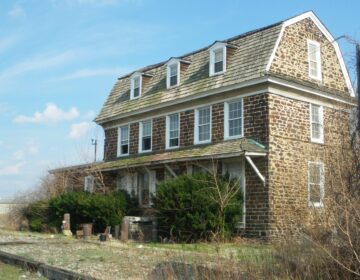Feds pull plug on N.J. plan to use customer subsidies for new power plants
A federal court has struck down the state’s efforts to spur development of new power plants, a decision with potentially big implications for what electricity customers will pay on their future energy bills.
The ruling, handed down late Friday by U.S. District Court Judge Peter Sheridan in Trenton in a 67-page decision, may mean utility customers will not be on the hook for up to $3 billion in subsidies over the next 15 years to help three developers build new natural-gas fired plants.
If the decision stands, however, it deals a huge defeat to one of the Christie administration’s signature energy goals — promoting the building of nearly 2,000 megawatts of new generation. Proponents argued that the plants, if built, would lower energy costs beyond what ratepayers would pay to subsidize the new units under a law enacted two years ago with broad bipartisan support.
New Jersey has some of the highest electric rates in the nation, a dubious distinction earned by congestion on the regional power grid, which tends to spike electricity costs, and the high prices paid to power suppliers to ensure there is enough capacity to keep the lights on in times of peak demand.
The decision is the latest twist in what has been a highly contentious and litigious battle between incumbent power suppliers, who brought the suit in federal court, and the state over its efforts to encourage new power plants to be built. New Jersey has been on the losing end in virtually all of the rulings.
Previously, the Federal Energy Regulatory Commission ruled against the state on a related, but not identical, issue that also impeded New Jersey’s attempts to achieve its goal. The state’s efforts also have been opposed by PJM Interconnection, which oversees operation of the regional power grid.
In the ruing, Sheridan echoed the conclusion of another federal district court earlier this month on a similar effort by Maryland to encourage new power plants in that state. Both courts ruled that the states’ efforts are unconstitutional, saying they were attempts to supplant duties delegated to FERC in violation of the supremacy clause in the U.S. constitution.
PSEG Power, one of the incumbent suppliers involved in the court case, welcomed the decision.
“We’re pleased the court ruled in a manner that preserves competition in electricity markets,” said Michael Jennings, a spokesman for the company. “We believe that competition is the best approach for ensuring there is a sufficient supply of electric capacity to meet demand at the lowest cost.”
The New Jersey Board of Public Utilities has long disputed that view. The agency has contends the current system of deciding what power plants are built in PJM favors incumbent suppliers to such an extent that it precludes new units from entering the market, which allows existing power plants to enjoy huge profits from providing needed capacity at times of peak demand.
A BPU spokesman declined to comment on the ruling, saying its lawyers were reviewing the decision. A spokesman for Competitive Power Ventures, a company awarded ratepayer subsidies by the BPU, also deferred comment on the same grounds. Neither NRG Energy nor Hess, both of which also were granted subsidies, replied to email messages over the holiday weekend for comment.
It is unclear what impact the court decision will have on those initiatives — all part of what was dubbed the Long-term Capacity Pilot Project (LCAPP)- – but some industry observers have speculated that only the Hess project in Newark, a 625-megawatt facility, is certain to move forward without the subsidies.
“It’s a defeat for the LCAPP program, especially coming on the heels of the Maryland decision,” said Paul Patterson, an energy analyst with Glenrock Associates, who has followed the New Jersey issue closely.
Jeff Tittel, director of the New Jersey Sierra Club and a prominent critic of the program, praised the court’s decision, calling it a victory for common sense and clean energy.
“The subsidies given to the LCAPP plants are nothing different than the fossil-fuel version of pay-to-play,” he said.
The court decision comes at a time when the wholesale energy market — involving those who supply electricity to states that have broken up electricity monopolies (as has New Jersey) has changed markedly since state lawmakers first began debating the law in 2011.
Historically low natural gas prices and tougher environmental regulations on coal-powered plants, which have forced many older, inefficient generating units into retirement, have led to a multitude of new natural gas plants being proposed, including one in New Jersey in West Deptford Township, without any ratepayer subsidies.
Nonetheless, advocates of the state approach to spur new generation were disappointed.
“We’re disappointed to see the law overturned,” said Hal Bozarth, executive director of the Chemistry Industry Council of New Jersey and a big supporter of the law passed by the Legislature. “We need additional capacity in New Jersey and new plants will reduce costs for our members and all ratepayers — and that is a good thing.”
___________________________________________
NJ Spotlight, an independent online news service on issues critical to New Jersey, makes its in-depth reporting available to NewsWorks.
WHYY is your source for fact-based, in-depth journalism and information. As a nonprofit organization, we rely on financial support from readers like you. Please give today.











